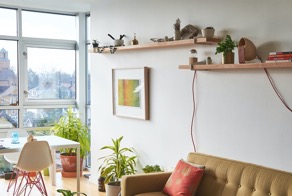A rental property will be a good investment if the rental income immediately covers the costs and if the property has the potential for capital gain. Remember tax is payable on any capital gain on the sale if you sell the property within five years or if you’re in the business of selling or developing properties. So think of rental property as a long term prospect.
As with most large purchases, the value of a rental property will depend on the amount paid for it, its quality (including its location), and its income.
Many property investors would say that you make your money when you buy a property and this is definitely a good way to lock in an immediate capital gain. But how do you do that? There are several ways including the “Ds”, that is properties being sold as a result of divorce, desperation, debt, dereliction, death, and division of existing land.
These may be properties that are being sold where a divorcing couple do not want to put any energy or money into tidying a property up for sale, where a business owner may want to quickly liquidate a property for funds to buy another business or expand, where someone needs to repay a debt, is no longer able to keep up their mortgage payments because they’ve lost their job, a bank mortgagee sale, a property that has been left derelict, and is maybe now being sold to cover unpaid rates, dilapidated so some may not see the property as worthwhile fixing up, death of a relative where the family want a quiet and quick sale without open homes etc.
One of my clients had a friend who split up with her husband. Originally from the US she decided that she wanted to go back to the US as soon as possible so offered the property to my client for a fraction of its value. She was already well off and decided that by the time she’d spent money tidying it up, staging it and paying real estate agents fees, she would rather sell it to someone she knew for a much reduced price. My client got an absolute bargain and has happily rented it out ever since.
However you can still buy a good property at its market price and do well, usually because the property is in a good location or has potential for adding value.
For example, in recent years many Councils have passed by-laws reducing the size of land eligible for sub-division to encourage in-fill housing. As a result homeowners may now be able to build an additional dwelling on site and can often gain resource consent if an even larger property would not significantly affect neighbours. Such opportunities allow home owners to suddenly build an additional property without having any land cost, saving as much as $100,000 in some cases.
Or you may be able to make a 3 bedroom house into a 4 bedroom one by converting a laundry or dining room (think student flats in Dunedin) or by building into roof space. Decks and landscaping don’t need to cost a lot but can add considerably to the rental value of a property. Updating kitchens and bathrooms (have a look at Bunnings and Mitre 10) can cost-effectively increase the rental income. Spending $40,000 on significant updating (kitchen, bathroom, flooring, doors, paint and adding a heatpump) can add $100,000 to the value of a property and $100-$200 per week to the rental income.
Pay careful attention to the quality of the property. It’s usually worthwhile to get a builder’s report done to look at the earthquake strengthening position, weather tightness, methamphetamine use, sea levels, soil contamination etc. Go in with your eyes wide open. If you can’t do any of the work yourself then limit yourself to easily quantifiable work – otherwise you may end up with costs that can never be recovered on sale. Get a rental assessment. I’ve had more than one client buy a rental property from someone they knew who told them the property was under-rented, to later find out more than market rent was already being paid.
Location is a big factor in quality too. Good things to look out for are sun, access to public transport, proximity to schools, shops and playgrounds, and neighbours. You may want to avoid proximity to landfills, busy roads, damp and dark locations, and isolation – although these may not bother some tenants. You’ve probably heard the refrain “Location, location, location”. Certainly a good location will ensure an easier sale in the future.
Income: The golden rule here is to make sure the rent covers the cash costs: interest on the mortgage, rates, insurance, maintenance, and body corporate and property management fees (if any).
In the example below you can see that based on borrowing the whole $500,000 for a property and an interest rate of 3% (conservative at the moment but allowing for a small increase) you’ll need to be able to charge $435 per week to cover expected costs. This should be very achievable in larger cities, for example, for an apartment, and anything less is probably best avoided – otherwise you’ll be going backwards financially! On the other hand any rental income exceeding $435 is a bonus!
| Interest (3% of $500,000): | $15,000 |
| Property Management Fee (8% of rent) | $1,740 |
| Rates: | $2,000 |
| Insurance: | $1,000 |
| Maintenance: | $2,000 |
| Total costs per year: | $21,740 |
| Rent required per week (based on 50 weeks) | $435 |
Remember you make your money when you buy because a property is under-priced or has potential to increase its value. This is your chance to think creatively!
The information in this blog does not purport to be financial advice and no reliance should be placed on it. It is of a general nature only based on my experience as a Chartered Accountant in practice and specific advice should be sought for your particular situation.

